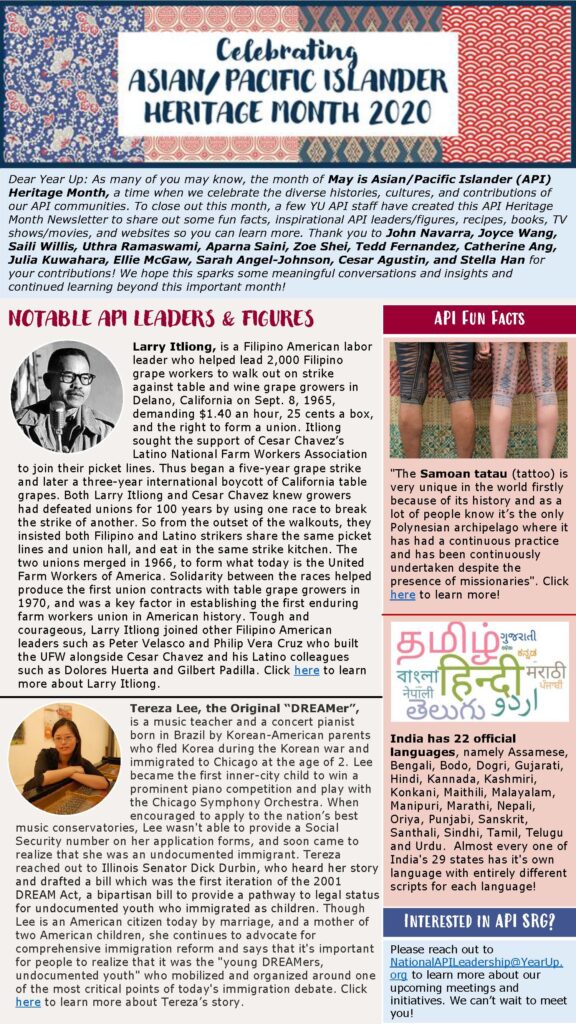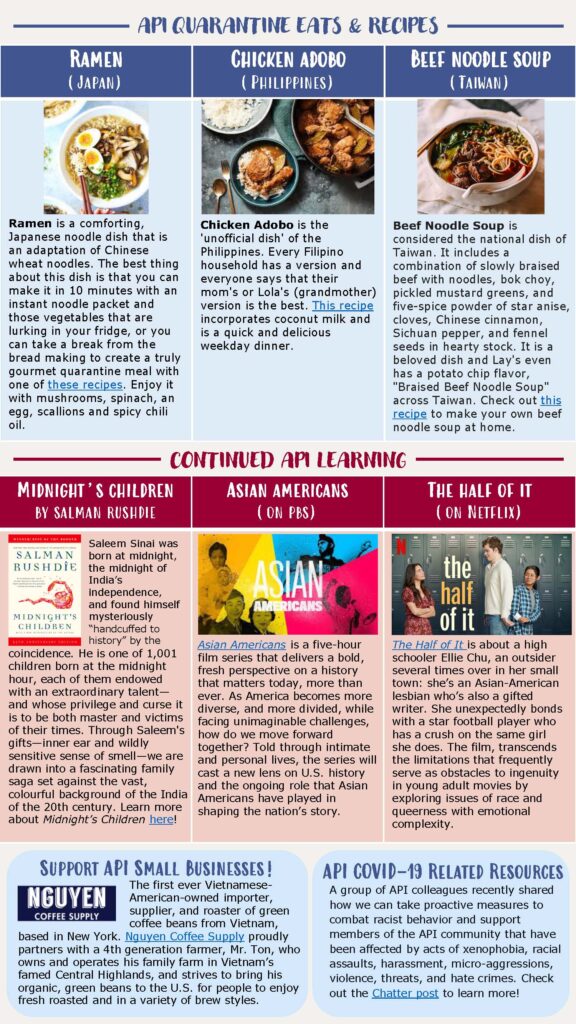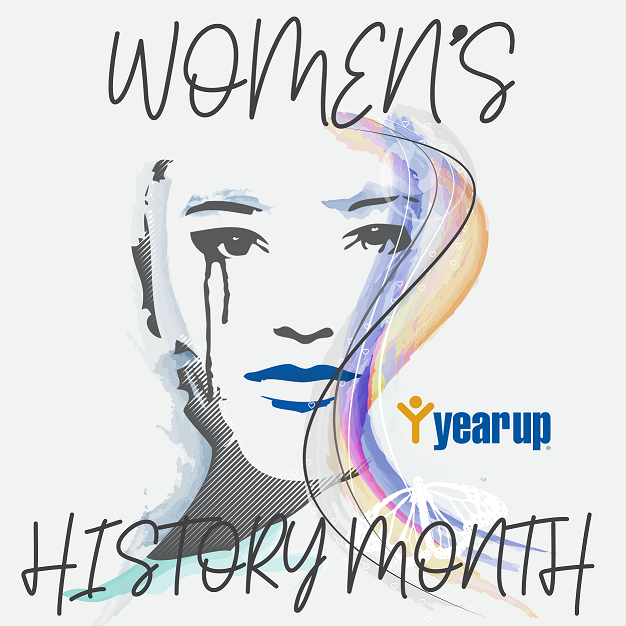



Hi Year Up,
Starting at sunset on Thursday, April 23rd, and lasting until Saturday, May 23rd is the Muslim holy month of Ramadan. This year, the entire month may fall during social distancing restrictions across the nation. Ramadan is the ninth month of the Islamic calendar observed by Muslims worldwide as a month of fasting (sawm), prayer, reflection, and community. A commemoration of Muhammad’s first revelation, the annual observance of Ramadan is regarded as one of the Five Pillars of Islam and lasts twenty‐nine to thirty days, from one sighting of the crescent moon to the next.
In this time, when hearing from others is crucial for Year Up’s community, we wanted to take an opportunity to elevate new voices from our network. We shared a conversation between a Year Up Greater Boston staff member, Aadil Sulaiman (AD of Employment Placement), and current Year Up student Zariah Boateng (YUGB Student – LC Believe). Aadil and Zariah had a brief conversation about Ramadan and what the holiday means to them, their families, and Muslims around the world, along with how COVID‐19 impacts the holy holiday.
What do Muslims do during the month of Ramadan?
A: Healthy Muslim adults fast (no food or water) from dawn until dusk. Usually, a meal is eaten before dawn (suhoor) and after dusk (iftar).
Z: My family fasts and goes to the masjid (Mosque) every day from iftar (around 8 pm) and stays until suhoor (5 am). We celebrate and spend time with family and friends for as many days of the week, as we can when we aren’t working.
A: On the last day of Ramadan (5/23), there is usually a big party for Eid al‐Fitr (Festival of Breaking the Fast) with friends and family.
How might this be different for students and colleagues during Covid‐19?
Z: People are disappointed because it’s meant to be a big celebration, and it really fills you up spiritually. I am still getting together with my family, who live in my house to pray every day. Some people in my house are still working in the evenings, but we celebrate with whoever is free each night.
A: It’s hard being at home, working all day, and having to avoid all my delicious food and snacks eyeing me from the kitchen. I don’t live with any Muslim family members or friends, so the community aspect feels a bit different. With everything going on in the world, I am trying to be kind to myself and may only fast for a smaller portion of the month. It’s customary for my family to give to charities if you aren’t fasting, and I will definitely be doing that during this month.
How can I be supportive of my Muslim students and colleagues this month?
Z: The first few days of fasting are tough (mood swings, headaches), but then things get back to normal. Be aware and supportive during this time.
A: Also, be understanding and aware as Muslim colleagues are observing Ramadan, which means feel free to say “Ramadan Mubarak” (Blessed Ramadan) or “Ramadan Kareem” (Have a generous Ramadan) any time between now and the last day (5/23). At the end of Ramadan, you should wish them “Eid Mubarak” (Blessed celebration) to celebrate Eid al‐Fitr.
Here’s an excellent article from CNN that we shared last year with more ways to be aware: https://www.cnn.com/travel/article/ramadan‐non‐muslims‐etiquette‐guide/index.html
Best,
Antoine Andrews + Aadil Sulaiman
Hi Year Up,
In March, we celebrate Women’s History Month and International Women’s Day, on Sunday March 8. To celebrate the month, I plan to immerse myself in experiences that affirm me for all of who I am – an African American, bi-racial, woman, mother, professional, leader. This weekend, I will attend the second annual Black Girls Rock (BGR) fest at the Kennedy Center in Washington D.C., immersed in the intellectual, creative, supportive, powerful presence of Black women. This morning, I rode the Soul Cycle Black Girls Rock ride dj’ed by founder Beverly Bond, who started BGR as a t-shirt designed to recognize Black women whose historical contributions were not widely known.
The Women’s History Alliance selected “Valient Women of the Vote” as the 2020 theme. In describing the theme, the organization writes: “In recognition of the centennial of the 19th Amendment, we will honor women from the original suffrage movement as well as 20th and 21st century women who have continued the struggle (fighting against poll taxes, literacy tests, voter roll purges, and other more contemporary forms of voter suppression) to ensure voting rights for all.” The four inspiring living honorees are:
What I most appreciate about this theme is the acknowledgement that the fight for equal voting rights and by extension, justice and equality for all, persists to this day. The existence of Women’s History Month is acknowledgement that the study of past events must expand to correct for the absence and excluded stories of marginalized people. Also, the month is an inspiring reminder of the power of women to lead movements that change the world.
Colleagues, let’s find ways to affirm, nurture and inspire ourselves and each other this month.
Take care,
Ellen

Dear Year Up,
I hope this note finds you all well during graduation season. I wanted to write as we near Dr. Martin Luther King, Jr., Day with some reflections on our collective service to Dr. King’s legacy. Each year for the past two decades, MLK Day has served as an opportunity for us to celebrate the progress we’ve made in building a more just and equitable society, and to look with clear eyes to where we still have work to do in eradicating the persisting challenges of racism, sexism, inequality, and injustice. Every year, the accomplishments of our graduates, our staff, and our community shows me that our work for social and economic justice is bringing about a better world.
What we have accomplished in the past twenty years is truly incredible. When I had the good fortune to start Year Up, I believed we could reach 10,000 young adults and help them launch into meaningful careers. To date, we have served more than 27,000 young adults, and the ripples of their success are turning into waves. Our graduates are earning advanced degrees, taking on senior roles in leading companies, making their voices heard at every level of government, and ensuring that they are lifting while they climb. I can’t help but think of our work as a direct continuation of the marches, the actions, and the moral vision of the leaders of the Civil Rights Movement.
At the same time, our world continues to show us that our work is just as urgent and important as it was twenty years ago. The same systems that Dr. King saw and worked against – racism, poverty, and militarism – persist and evolve, and their manifestation in our society drives inequality and injustice. These can seem too big for us to take on, too foundational in our society to eliminate. But Dr. King believed strongly that we could become greater versions of ourselves. Today, I’m reminded of one of the best‐known passages from a Dr. King sermon: “Everyone can be great because everyone can serve.” Our service to our mission is the work that will undo these systems, and build a better world for us all.
In that same sermon, Dr. King wrote: “You don’t have to have a college degree to serve. You don’t have to make your subject and your verb agree to serve. You don’t have to know about Plato and Aristotle to serve….You only need a heart full of grace, a soul generated by love.” And today I am grateful to be surrounded by so many hearts full of grace, and so many souls generated by love. I hope you spend some time this Dr. King Day not only as a day of reflection but as a day to serve in your community.
Many thanks for all that you do in service to our young adults and be well,
Gerald